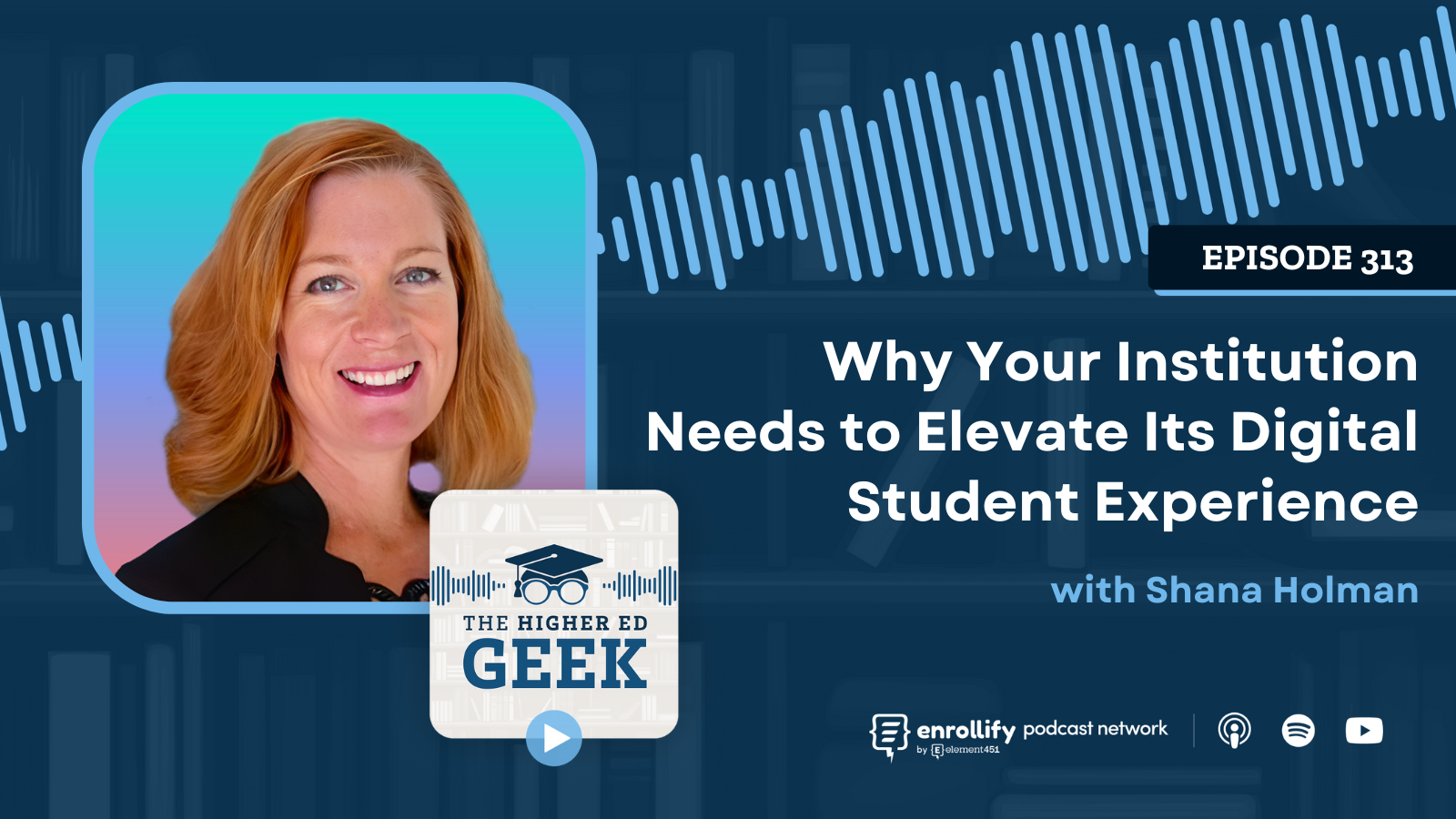About the Episode
About The Episode:
Christian Ponce sits down with Dr. Ana Luz Williams to dive into the importance of cultural intelligence and authenticity in higher ed marketing. The conversation explores how universities can better connect with Hispanic families through intentional campus events, thoughtful messaging, and a deeper understanding of cultural nuances. Dr. Williams shares personal stories and actionable strategies for creating inclusive, welcoming environments for prospective students and their families. If your institution is serious about improving Latino student enrollment and retention, this is a must-listen.
Key Takeaways
- Cultural Intelligence is Essential in Higher Ed Marketing: Generic, one-size-fits-all outreach fails to resonate with diverse audiences. Institutions must embrace cultural nuances in messaging and event planning.
- Family-Centered Recruitment Is Crucial: For many Latino families, the college decision is a shared experience. Universities must design events with the entire family in mind — not just the student.
- Authentic Representation Matters: Translation alone isn’t enough. Messaging must reflect lived experiences and use culturally appropriate language and imagery to build trust.
- Use Internal Resources for Bilingual Engagement: Students, staff, and faculty can be tapped as language ambassadors and cultural connectors.
- Tech and Visuals Work Together: AI and multilingual tools can support outreach efforts, but visuals and representation remain key drivers for engagement and understanding.
- The Future is Latino: With 6.2 million degrees needed by 2030 to close the education gap, Latino student recruitment isn’t just an opportunity — it’s a necessity.
Why is cultural understanding essential in student recruitment?
Dr. Ana Luz Williams emphasizes that assuming all students respond to the same messages is a costly mistake. She shares her own upbringing as a Dominican-American navigating a “double life,” balancing traditional cultural expectations with the American education system. Her experience underscores the critical role that culture, gender roles, and family dynamics play in educational attainment — especially for Latino students.
Effective student recruitment requires more than translating brochures — it demands a deep understanding of familial roles, belief systems, and generational differences. Marketing teams need to do more than just target students; they must also speak to parents, grandparents, and siblings. This means developing culturally intelligent strategies rooted in research and empathy.
How should colleges approach marketing to Latino families?
The decision to attend college is often communal in Latino households, where extended family members have a voice in the process. Dr. Williams explains that schools must design family-friendly events with intentional touches — from bilingual tours to child-friendly spaces — to make everyone feel welcome. At Old Dominion University, her team includes student ambassadors who speak multiple languages and help families navigate the campus in culturally resonant ways.
Universities can start small by using on-campus talent — students, faculty, and staff — to support these efforts. Creating welcoming spaces also includes paying attention to accessibility, childcare options, and family-style programming. As Dr. Williams shares, even younger siblings can shape a family's decision based on how engaged and included they feel during a visit.
What’s the difference between translating and adapting messaging?
Translation and adaptation are not synonymous. As a veteran Spanish teacher, Dr. Williams reminds us that direct translation often fails due to differences in structure, idioms, and tone. Literal translations can lead to confusing or even offensive messaging. Instead, universities should invest in cultural adaptation — ensuring that the meaning and emotional impact of the message are preserved across languages.
This means crafting content in the target language from scratch, rather than simply rewriting English materials. It also means including diverse visuals that reflect the intended audience. Latino families, for instance, may prioritize imagery of multigenerational families and warm, communal environments. Representation builds trust and fosters a sense of belonging — both critical for influencing enrollment decisions.
What are some practical best practices for multicultural campus visits?
Dr. Williams outlines several replicable strategies universities can adopt to create more inclusive events:
- Hire bilingual student ambassadors who can lead tours and engage with families in their native language.
- Design family-inclusive programming with options for younger children, like coloring books and activity zones.
- Ensure accessibility for elderly family members, such as golf carts or wheelchair accommodations.
- Center the student experience around community, helping students imagine themselves thriving with support systems that reflect their cultural values.
The takeaway? Creating culturally inclusive events doesn’t have to break the bank — but it does require intention, planning, and empathy.
What role does AI and technology play in multicultural marketing?
While AI tools like chatbots and translation plug-ins can support outreach, Dr. Williams is clear that they are no substitute for human oversight. The nuances of language and culture demand a human touch, especially when accuracy and authenticity matter most.
Still, tools like CRM systems, multilingual websites, and AI-powered chat can help streamline communication and reduce friction points for international families. But institutions must remember that visuals speak louder than words — particularly for families who rely heavily on imagery and tone to understand an institution's values.
Why is improving Latino enrollment and retention a national priority?
Christian closes the episode with a powerful statistic: Latino students are 13% less likely to graduate in six years compared to their white peers. To close this gap, 6.2 million degrees must be awarded to Latino students by 2030. By 2060, one in three Americans will be Hispanic — making Latino enrollment and retention not just a moral imperative but a national necessity.
Dr. Williams reminds us that the Latino GDP exceeds $4.1 trillion. When colleges fail to engage this growing demographic, they miss out on more than student diversity — they miss economic opportunity and institutional sustainability.
Enrollify is produced by Element451 — the next-generation AI student engagement platform helping institutions create meaningful and personalized interactions with students. Learn more at element451.com.







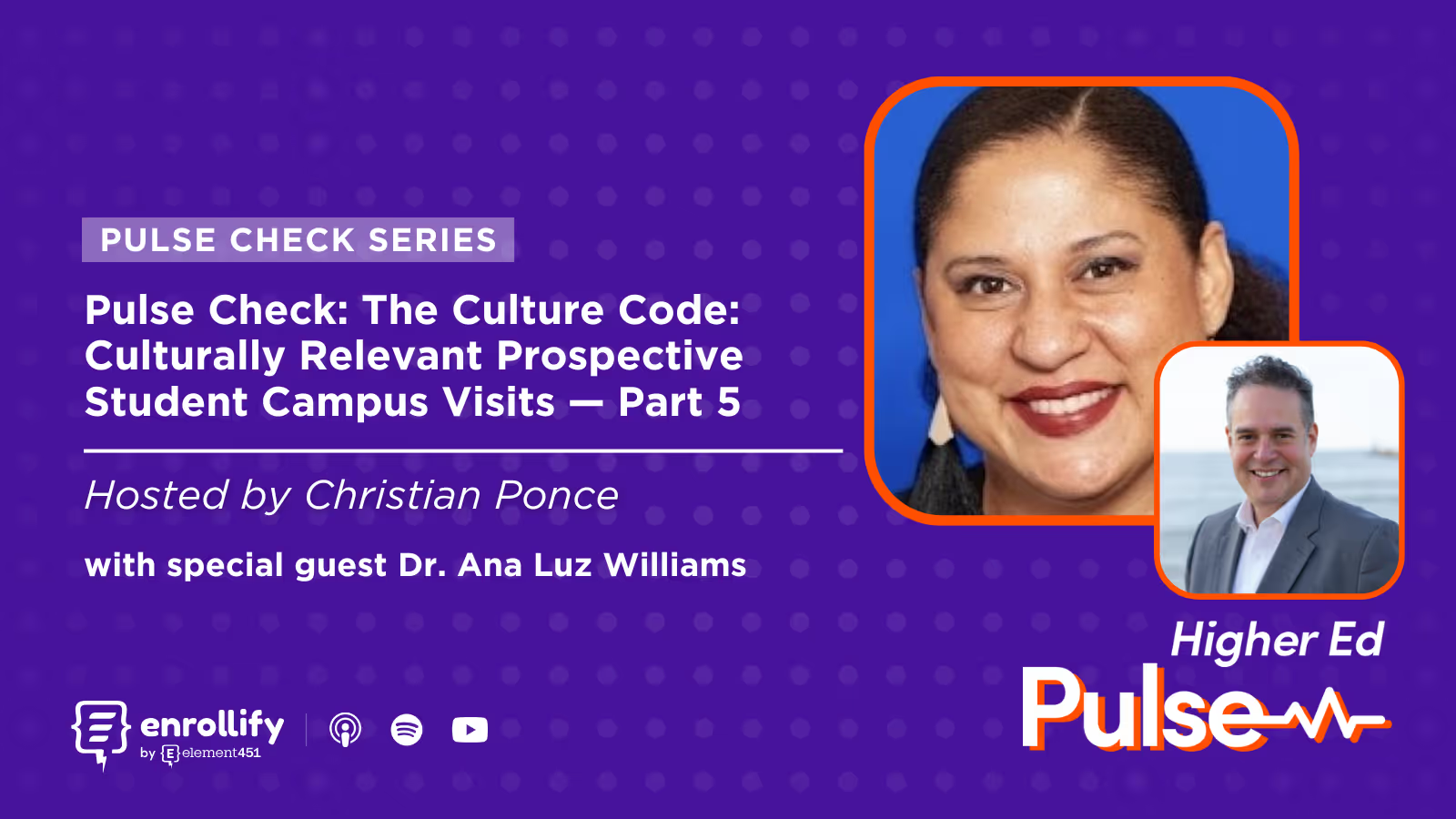

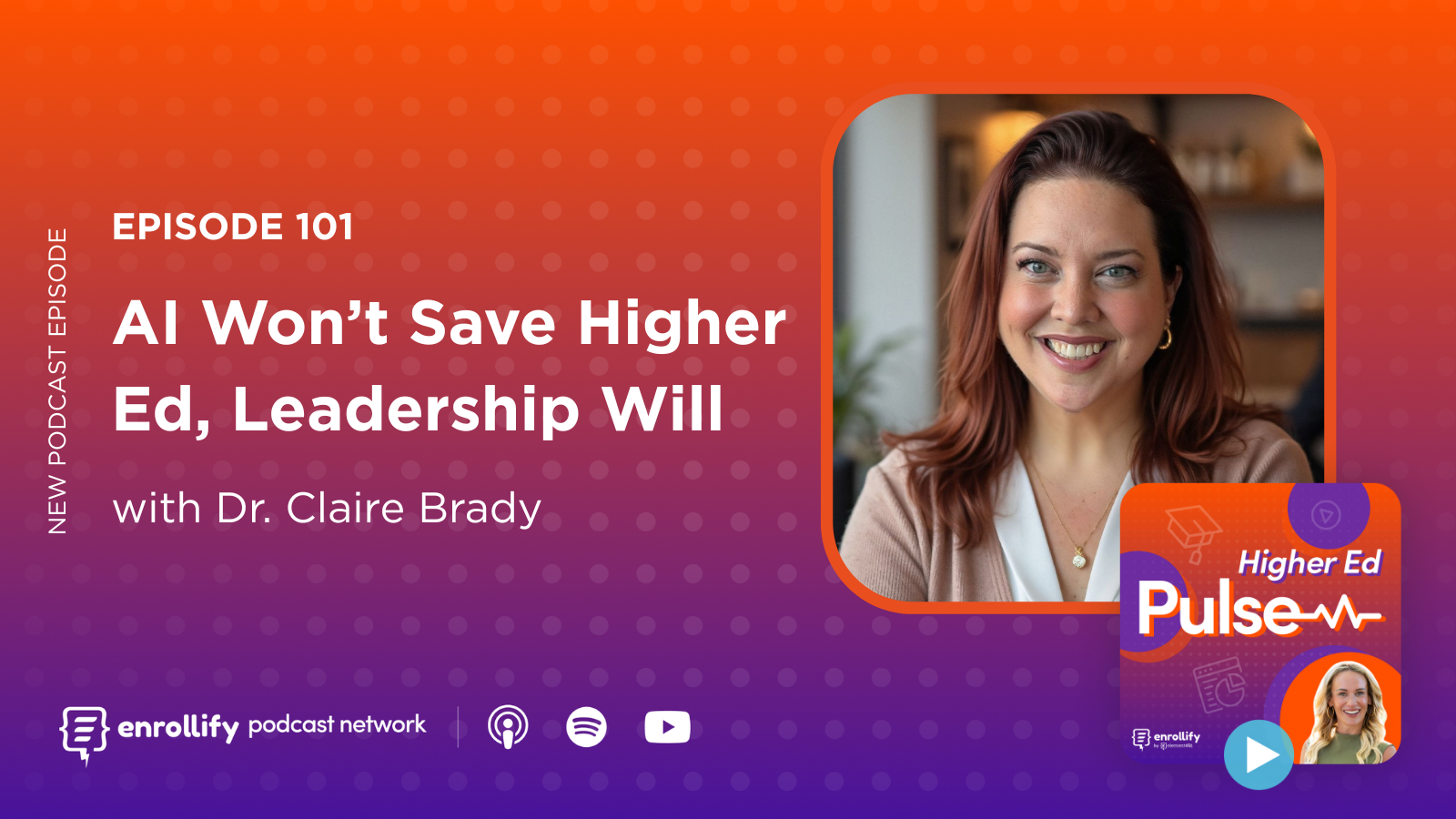

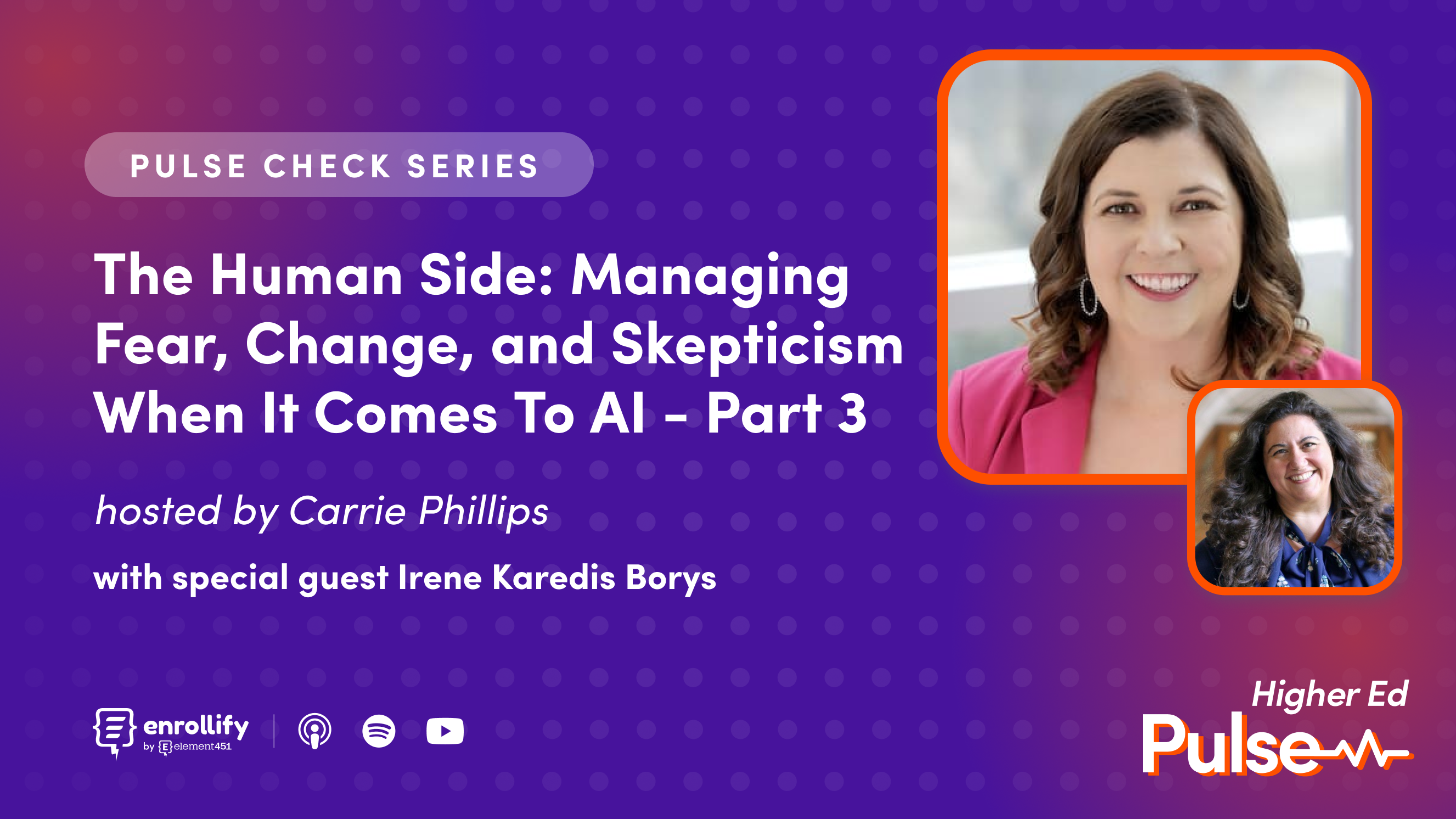
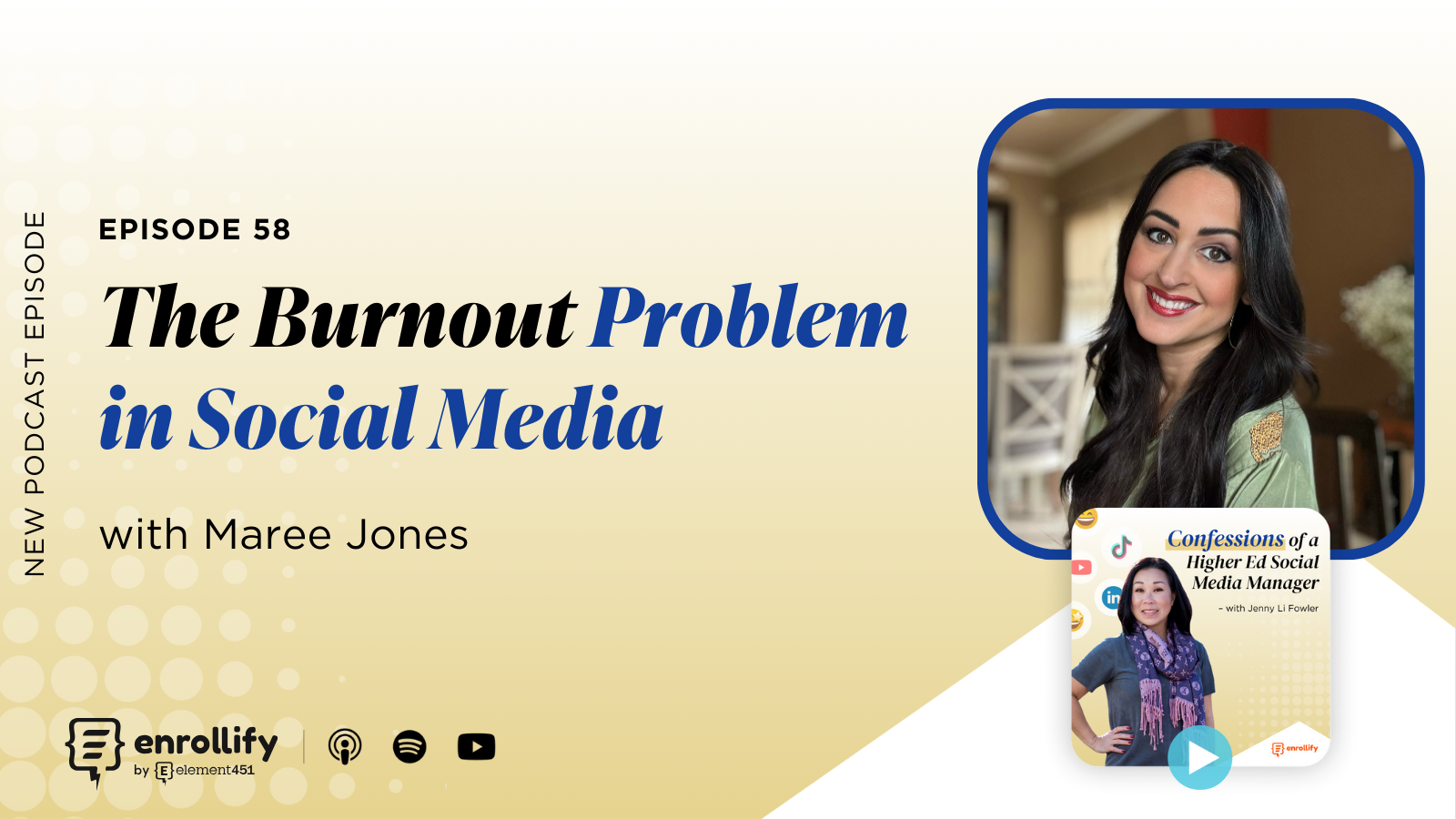
.png)
